Cybercrime in Mozambique increased by 16% last year
Hidden debts trial: 31 August 2021 – AIM reports
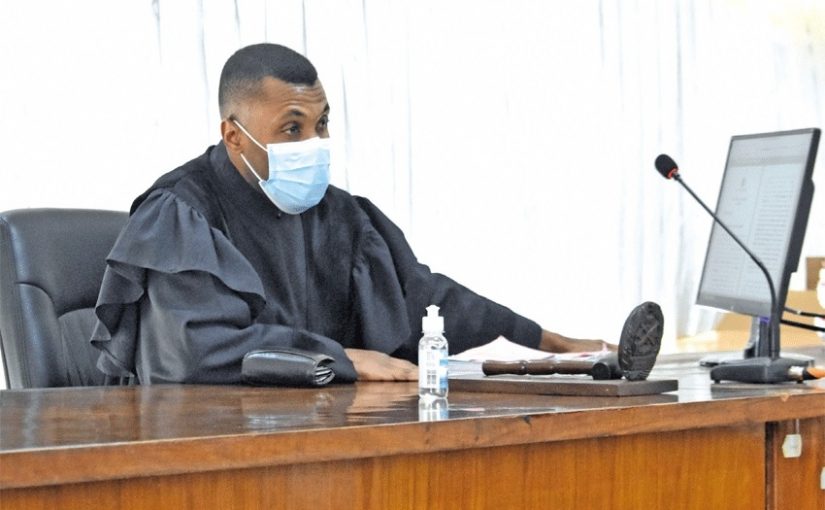
Picture: Jornal Domingo
- Court wants Boustani to testify
The Maputo City Court on Tuesday decided to call Jean Boustani, a senior executive of the Abu Dhabi based group Privinvest, to give testimony in the current trial of 19 people in connection with the scandal of Mozambique’s “hidden debts”.
Boustani’s name has been mentioned repeatedly since the trial began on 22 August, as the Privinvest official in charge of making illicit payments to the defendants. The scale of the alleged bribes (or “success fees” as the defendants prefer to call them) was truly enormous – the prosecution says that Boustani gave a 33 million dollar bribe to Ndambi Guebuza, the oldest son of former president Armando Guebuza.
Guebuza Junior does not deny links with Boustani, but he claims they had nothing to do with bribes. He told the court that any payments made to him were under a “partnership” he had set up with Boustani.
But he refused to give the court any information about this alleged partnership. What is known about the money sent by Privinvest for Guebuza’s use in South Africa is that it was used to buy real estate and luxury cars.
It was one of Guebuza’s lawyers, Alexandre Chivale, who first proposed calling Boustani as a witness. The prosecution and the judge agreed, but a lengthy and highly repetitive debate followed on how to obtain Boustani’s testimony.
The Mozambique Bar Association (OAM), which is assisting the Public Prosecutor’s Office, insisted that Boustani should testify, in person, before the court. The defence lawyers, and prosecuting attorney Sheila Marrengula thought it more realistic to allow him to testify by video-conference.
The court decided that the Attorney-General’s Office (PGR) should contact the judicial authorities in Boustani’s home country, Lebanon, to arrange the mechanisms whereby he can testify.
The likelihood of success in this attempt is minimal. Boustani is most unlikely to come to Mozambique, since he will almost certainly be arrested as soon as he sets foot in the country. As for a video-conference link, the Mozambican court has no way of obliging him to speak before the cameras.
The OAM also asked the court to call as witnesses the various friends to whom Guebuza had given the luxury cars bought with Privinvest funds.
Guebuza came under increased questioning about the bank account he had opened in Abu Dhabi, which the prosecution believes was a channel for bribes. He retorted “There is no law in Mozambique that forbids Mozambican citizens from opening bank accounts abroad”.
This is true – but there is a law against using false documents, and Guebuza had opened the account via an Abu Dhabi resident’s visa which claimed he was living in Abu Dhabi, and working as a hydraulic mechanic, neither of which was true. The banking authorities in the United Arab Emirates might also be interested to find that Privinvest is opening accounts for foreign nationals under false pretenses.
The OAM noted that the Abu Dhabi account was opened immediately after the bank Credit Suisse had transferred 300 million dollars to Privinvest. This was the first instalment of a loan, which eventually rose to 622 million dollars, to Proindicus, one of the three fraudulent Mozambican security-related companies at the heart of the “hidden debts” scandal.
Guebuza Junior continue to display disrespect for the court, leading the judge, Efigenio Baptista, to rebuke him, saying that he did not expect this behavior from someone who had received a good education from his parents.
“You don’t have to be rude in order to express your rights”, said Baptista. “When a child is rude, this embarrasses his parents”. Listening to this rebuke was Ndambi Guebuza’s father, the former President, who attended the trial in person.
The trial has now adjourned until Thursday, when Bruno Langa, a close friend of Ndambi Guebuza, who also received payments from Privinvest, will testify.
- Guebuza’s son may face tax evasion charges
Ndambi Guebuza, the oldest son of former Mozambican President Armando Guebuza, may have laid himself wide open to charges of tax evasion, given his refusal to answer questions about his financial affairs.
On Tuesday, the second day of his testimony before the Maputo city court in the case of the country’s largest financial scandal, known as the “hidden debts”, Guebuza Junior refused to say whether he had paid taxes on earnings abroad, or had even declared them to the Mozambican tax authorities.
The court heard how the Abu Dhabi based group, Privinvest, had transferred large sums of money to several South African companies, including Jouberts Attorneys, and Pam Golding Properties, that were then used by Ndambi Guebuza to purchase real estate and luxury cars.
Guebuza claimed these financial transfers were part of an unspecified “partnership” he had formed with the senior Privinvest executive, Jean Boustani. He repeatedly denied receiving any money from Privinvest, but did not deny using the money transferred to Jouberts and Pam Golding.
When a representative of the Mozambique Bar Association (OAM), which is assisting the Public Prosecutor’s Office, asked Guebuza outright whether he had declared his South African earnings to the Mozambican Tax Authority (AT), he refused to answer, and made the irrelevant claim “I have South African residence rights”.
One of his defence lawyers claimed that Mozambicans are not obliged to declare earnings abroad – but the prosecution could easily quote from Mozambican tax legislation to prove that this assertion is quite wrong.
Public prosecutor Sheila Marrengula warned that her office may well open a new case against Guebuza for tax evasion. Substantial tax evasion carries a prison sentence of up to 12 years, and fines of hundreds of millions of meticais.
Marrengula said that, while it is impossible to add tax fraud to the current charge sheet, a separate case, drawing on evidence brought to light in this trial, could easily be opened.
The OAM asked Guebuza whether he believes that his role in the “hidden debts” scandal had damaged the Mozambican state. He refused to answer and claimed “this is a political matter”.
The judge, Efigenio Baptista, intervened to point out “We are not discussing politics. We are discussing whether any crimes took place”.
Guebuza retorted that the best man to ask about the debts would be the defence minister under his father, Filipe Nyusi (who is now the President). This line of attack did not originate with Guebuza, but is a tactic used by Privinvest in the London court case, where the Mozambican government is suing Privinvest in the hope that the debts will be declared illegitimate. Privinvest has, so far unsuccesfuly, demanded that Nyusi be called as a witness.
Repeatedly, the OAM asked Guebuza about his dealing with Boustani, and just as repeatedly Guebuza refused to answer. He would not give the slightest detail about the shadowy “partnership” he is supposed to have set up with Boustani.
Several times, he suggested that the court should phone up Boustani or Privinvest and ask them directly – a suggestion which nobody else in the room took seriously.
Asked why he had spent his money in South Africa, instead of sending it to Mozambique, he claimed that Boustani had investments in South Africa. “It was not viable to use the money in Mozambique, it was in South Arica”, he said.
Baptista remarked that this looked like money laundering, and could be a means “to hide assets of doubtful origin”.
To many of the OAM’s questions, Guebuza declared “I don’t know”, “I can’t remember” or “I answered this yesterday”. He is quite within his rights not to answer questions, but those watching the trial may draw their own conclusions.


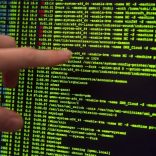

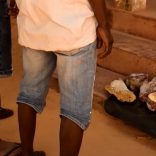
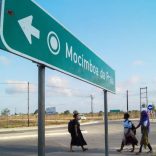
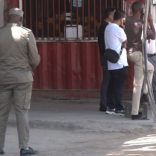
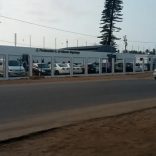





Leave a Reply
Be the First to Comment!
You must be logged in to post a comment.
You must be logged in to post a comment.